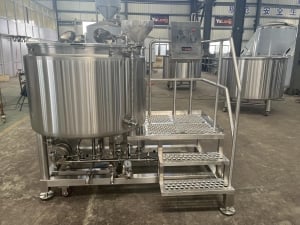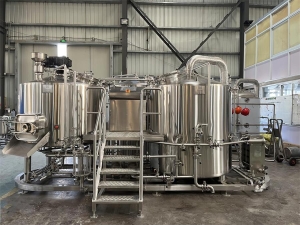Table of Contents
ToggleOverview of Setting Up a Brewery
Dreaming of crafting your own beer? A brewery setup is an intricate yet rewarding venture that combines science, art, and business. From choosing the right equipment to understanding the brewing process, there’s a lot to tackle. Whether you’re starting a microbrewery, a craft brewery, or an industrial-scale operation, this guide will help you set up a successful brewing facility. By the end, you’ll know the ins and outs of layout design, equipment selection, process optimization, and cost management.
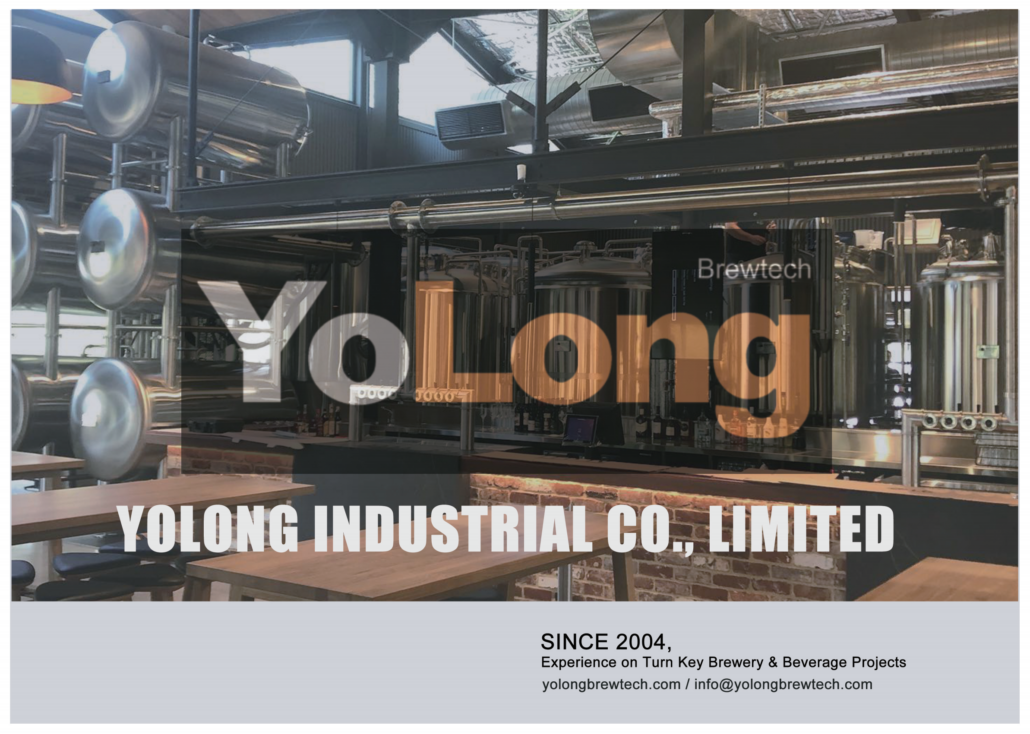
Troubleshooting Common Issues with Beer Fermenters
Beer fermenters are the heart of any brewery setup. However, even the most advanced systems can face hiccups. Let’s dive into some common challenges and their solutions:
1. Temperature Fluctuations
Fermenting beer at the wrong temperature can cause off-flavors. For instance, if the temperature is too high, you might get fruity or solvent-like notes, while too low can lead to incomplete fermentation.
Solution: Invest in fermenters with integrated temperature control systems. Ensure your brewery space has adequate insulation and consider using glycol chillers for precision.
2. Contamination Risks
Bacterial or wild yeast contamination can ruin your batch, leading to sour or unexpected flavors.
Solution: Sterilize fermenters thoroughly after each use. Use caustic cleaners, hot water, and sanitizers to maintain hygiene.
3. Over-Pressurization
Pressure build-up can cause safety hazards or affect beer quality by over-carbonating it.
Solution: Use pressure-relief valves and monitor CO2 levels closely. Regularly check seals and gaskets for wear.
The Brewing Process Explained
Brewing beer is a fascinating journey that turns basic ingredients—water, malt, hops, and yeast—into a delicious beverage. Here’s an overview of the key steps:
1. Malting
The process begins with malted grains, typically barley. Malting involves soaking the grains, germinating them, and then drying them to halt germination. This step develops the enzymes needed for starch conversion later.
2. Mashing
Malted grains are milled and mixed with hot water in a mash tun. The heat activates enzymes, breaking down starches into fermentable sugars.
3. Lautering
The sugary liquid, or wort, is separated from the spent grains in a lauter tun. This step ensures you’re left with a clear wort for boiling.
4. Boiling
The wort is boiled in a brew kettle. Hops are added to impart bitterness, flavor, and aroma. Boiling also sterilizes the wort.
5. Fermentation
After cooling, the wort is transferred to a fermenter. Yeast is added, and the fermentation process begins. The yeast consumes the sugars, producing alcohol and CO2.
6. Conditioning and Packaging
Once fermentation is complete, the beer is conditioned to enhance its flavor. It’s then filtered, carbonated, and packaged in kegs, bottles, or cans.
Capacity, Space, Design, Layout, and Customization of a Brewery Setup
Here’s a breakdown of the critical parameters for setting up your brewery:
| Parameter | Details |
|---|---|
| Capacity | Determine production scale: microbrewery (<15 barrels), craft brewery (15-60 barrels), or large-scale. |
| Space | Allocate at least 1,000 sq ft for microbreweries, 5,000+ sq ft for larger setups, including storage. |
| Design | Open layouts with efficient workflow for brewing, fermenting, and packaging are recommended. |
| Layout | Ensure separate areas for brewing, fermenting, and cleaning to avoid cross-contamination. |
| Customization | Tailor equipment (e.g., brew kettles, fermenters) to your recipe needs and local brewing regulations. |

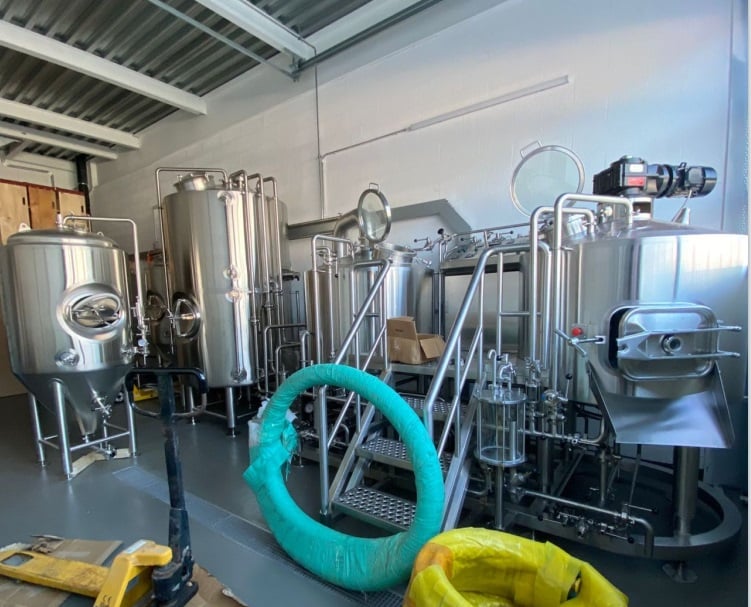
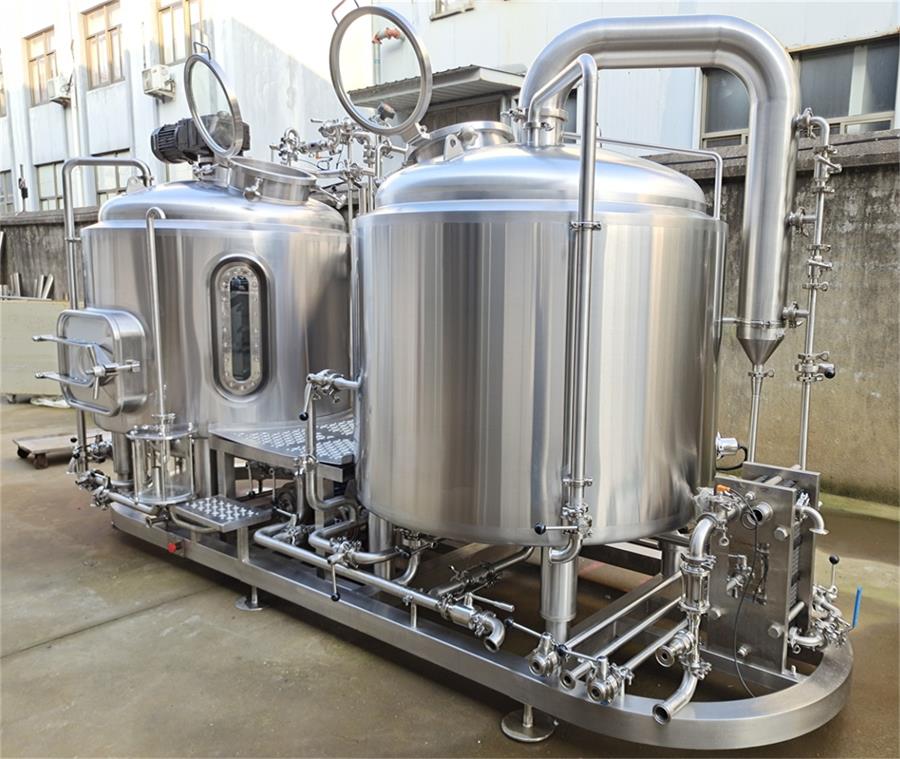
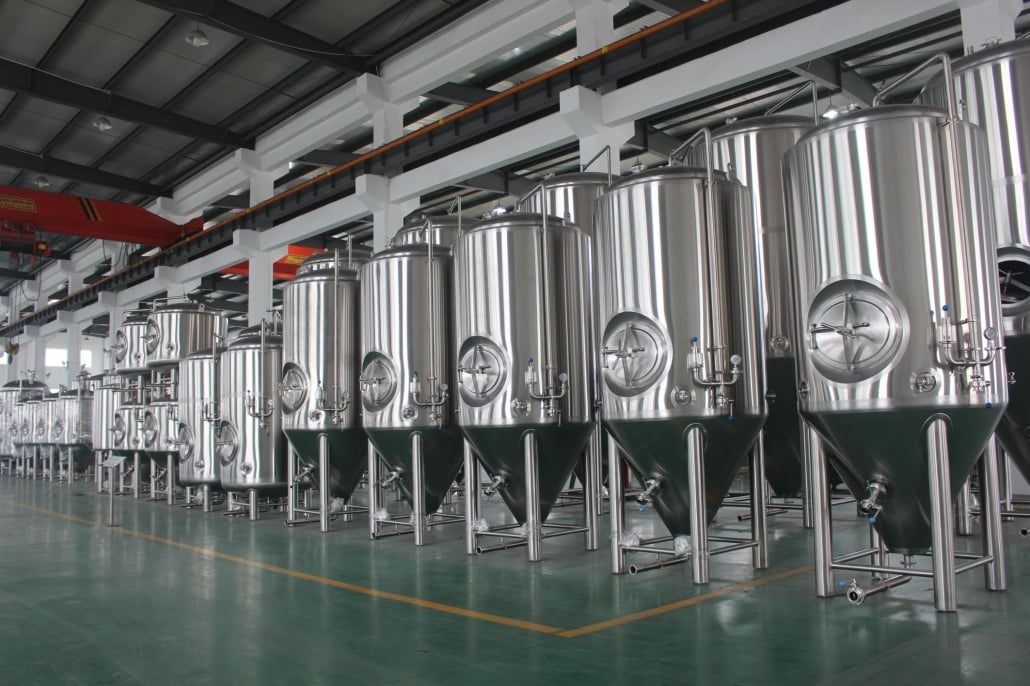
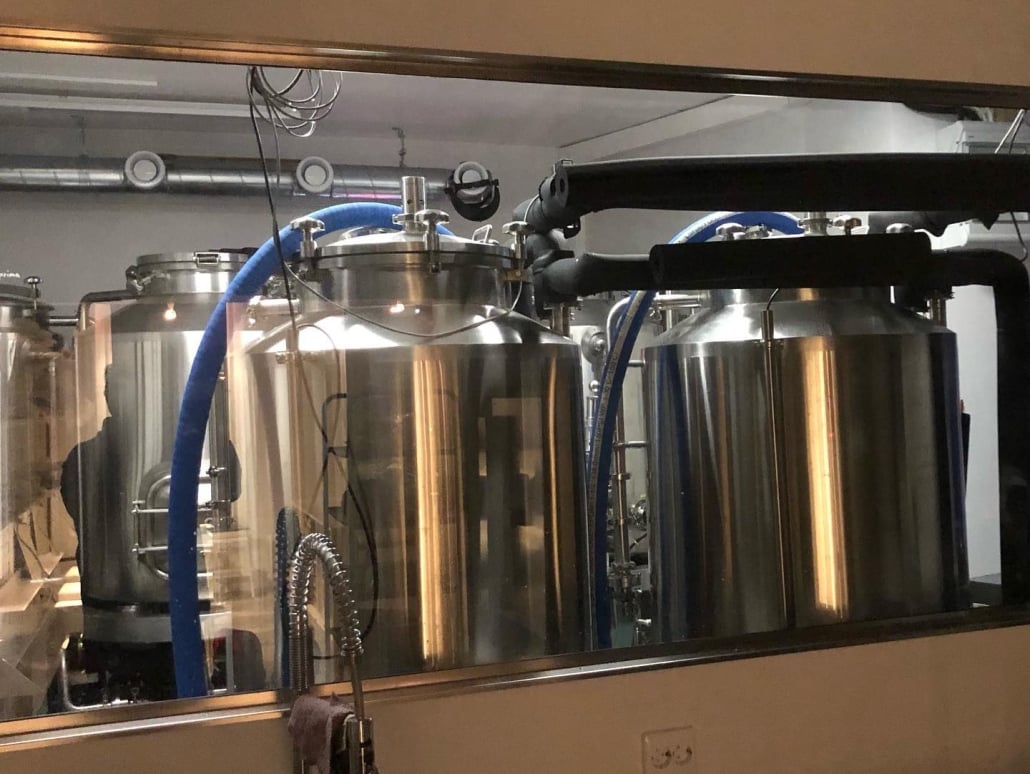
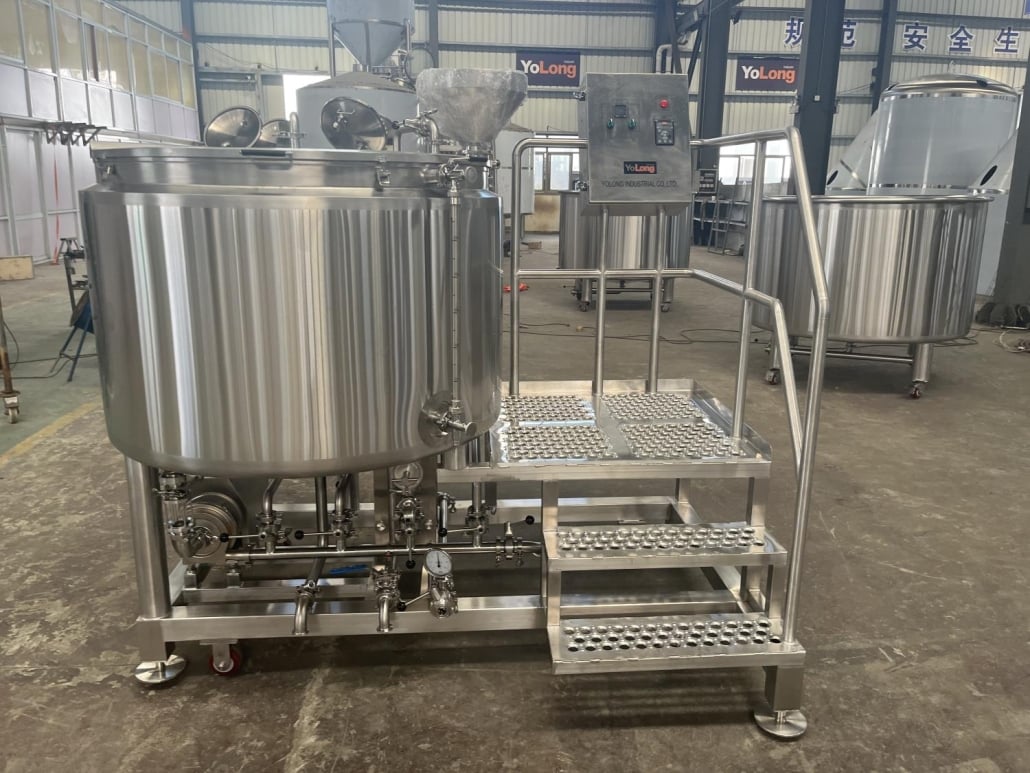
Suppliers and Price Ranges
Choosing the right supplier is crucial for acquiring reliable equipment. Below is a detailed overview:
| Equipment | Top Suppliers | Price Range |
|---|---|---|
| Brew Kettles | Ss Brewtech, Blichmann Engineering | $5,000 – $20,000 |
| Fermenters | Spike Brewing, Craft Kettle | $3,000 – $15,000 |
| Glycol Chillers | G&D Chillers, Pro Refrigeration | $4,000 – $12,000 |
| Packaging Systems | Wild Goose, Codi Manufacturing | $10,000 – $100,000+ |
Installation, Operation, and Maintenance
| Aspect | Details |
|---|---|
| Installation | Hire professionals to install brewing systems and plumbing. Plan for permits and inspections. |
| Operation | Train staff on equipment use and safety protocols. Automate repetitive tasks where possible. |
| Maintenance | Schedule regular cleaning of tanks and pipes. Perform annual servicing for glycol chillers. |
How to Choose the Right Supplier
Here’s what to consider when selecting a supplier:
| Criteria | Details |
|---|---|
| Reputation | Look for suppliers with excellent customer reviews and industry expertise. |
| Customization | Ensure they can tailor equipment to your specific brewing process and recipes. |
| Warranty | Verify warranty terms for major equipment like fermenters and brew kettles. |
| Support | Opt for suppliers offering after-sales support and easy access to replacement parts. |
| Cost | Balance quality with affordability. Avoid overly cheap options that may compromise quality. |
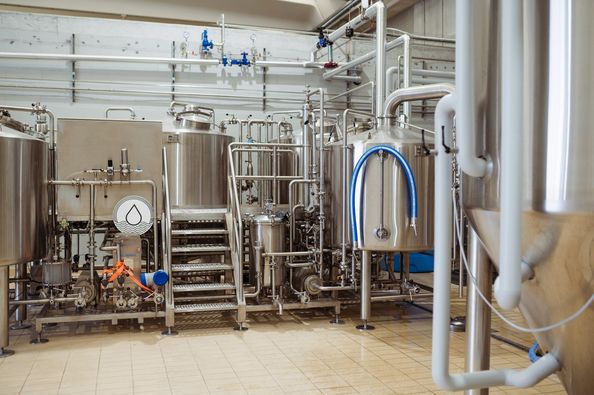
Comparing Pros and Cons of Brewery Setup Options
| Option | Advantages | Limitations |
|---|---|---|
| Microbrewery | Lower startup costs, flexibility | Limited production capacity |
| Craft Brewery | Strong brand identity, higher margins | Requires more space and investment |
| Large-Scale Brewery | High efficiency, large output | Significant capital and operational costs |
FAQ
| Question | Answer |
|---|---|
| How much does it cost to set up a brewery? | Costs vary from $100,000 for microbreweries to millions for large-scale operations. |
| What permits are needed? | Federal (TTB) and state-level brewing permits, plus health and safety certifications. |
| How long does it take to start brewing? | Typically 6-12 months after planning and installation. |
| Can I start with second-hand equipment? | Yes, but inspect for wear and compatibility with your brewing goals. |

